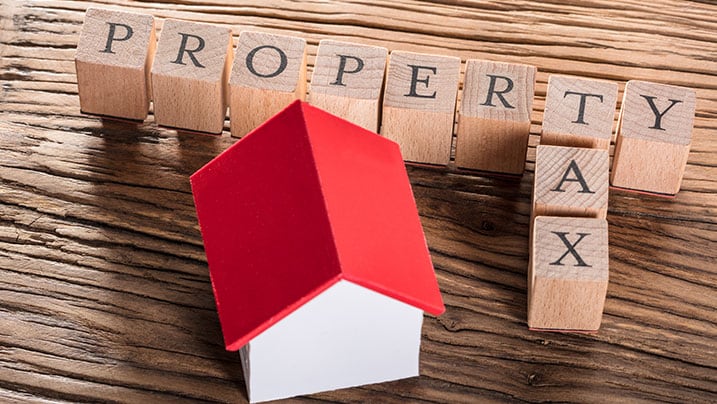The Government of Jammu & Kashmir has recently issued a notification for imposition of property tax in J&K. with effect from April 1st 2023.Lot of factually incorrect and misleading information is circulating in the media, with a potential of misguiding the people. It is important that the common public is aware of the correct and full facts of the matter. Why property tax in J&K? Property tax is being levied across the world by Municipalities to augment their resources. J&K was the only State/UT in the country which did not have. With poor finances, the ULBs across the UT were not able to deliver to their fullest! The revenue from other sources accounted for less than 15% of their operational expenses. Where are the funds for development available? Do we wish to remain entangled in the low revenue, low service level spirals? Was the any case for not collecting it in J&K? Certainly not! What is Property Tax? A robust and effective system of local self-government is foundational to the effective functioning of a democracy. A fundamental enabling condition for such a system to exist is to have adequate finances at the disposal of the institutions of self-government, and the more such finances are mobilized at the local level by these governments, the better for their effective functioning. One of the essential pillars of municipal financing the world over is property taxes. Government of India and the Finance Commissions set up by it, have been strongly recommending tapping this resource from time to time. It is with this background, and with an intend to strengthen out ULBs and ramp up the urban development for the betterment of common masses, the Government has decided to impose property tax in the Union Territory of Jammu and Kashmir. Is any development possible without adequate resources? Certainly not. Will Government take away the monies collected? Certainly Not! The monies will be collected by the ULBs, retained by them and then used for their development needs. If the tax is being collected from the people and spend only for their betterment, improving their quality of life, what is the problem? Is it very high? No, not at all!The Property Tax is proposed to be levied at 5% of Taxable Annual Value (TAV) of the Property in case of a Residential Property and at 6% of Taxable Annual Value (TAV), in case of Non-Residential Property. Infact, Tax rates, even in the Corporations are one of the lowest in the country, almost half that of Himachal, and one fourth to one sixth, overall, of other progressive States like Gujarat Maharashtra and Karnataka,and Delhi. Again, tax rates are 25% lower in the Municipal Councils, and 50 % in Municipalities. Moreover, it is progressive. Residential houses upto a buildup area of 1000 sqft have been exempted. Smaller assets are being taxed at lower rates. The taxable annual value has been linked to circle rates – lower the circle rate, lower is the tax liability! Further, weightage to age of property, use type and construction type etc is used to arrive on Annual Taxable value in a more comprehensive manner.If an owner of a residential bungalow over a kanal of land in a posh colony of Gandhinagar in Jammu and Raj Bagh in Srinagar, with the value of their assets being more than five crores, is required to pay Rs 500/- pm, is it unreasonable? Or is it unreasonable to charge Rs 100/- pm or even less, from a 3BHK apartment owner?Unjustified?Certainly not! Similarly, all places of worship, including temples, masjids, gurudwaras, churches, ziarats, etc are exempt from payment of property tax. For residential establishments (Tax payable in Rs) Property Jammu/ Srinagar Chandigarh Delhi Ludhiana Residential House/Flat upto 1000 Sqft 0 600-1000 300-7000 150-3500 Flat/Apartment 1500 Sqft 100-1150 900-1500 500-10000 300-10000 Residential Independent House 2000 Sqft 225-2500 1200-2000 650-14000 400-13000 Similarly, small commercial establishment especially shops upto size of 100sqft and 200 sqft are also provide relief with very minimal Tax implications. It is pertinent to mention that most of the shops especially in neighbourhood areas and old markets fall in this category. For commercial establishments (Tax payable in Rs) Property Jammu/Srinagar Chandigarh Delhi Ludhiana Small Shop 100 SqFt 50-600 200-650 275-3500 275-3500 Small Shop 200 SqFt 150-1800 400-1300 550-7000 550-7000 As Property Tax is to be levied annually and can be paid in two equal instalment it will not be burdening common citizen. Further, as per Act 10% rebate can be availed by early submission of Property Tax. This new Property tax policy will help municipal bodies to generate revenue forbetter municipal services with minimum Tax implications to residents. Bettermunicipal services are expected to attract more investment and encourage morepeople to set up businesses in the J&K. Revenue generated from property taxeswill be used to improve infrastructure, and significantly enhancing the quality and levels of being services provided byMunicipal bodies. Let us all be a part of this new Urban Renaissance J&K is witnessing.
Property Tax
A
A


